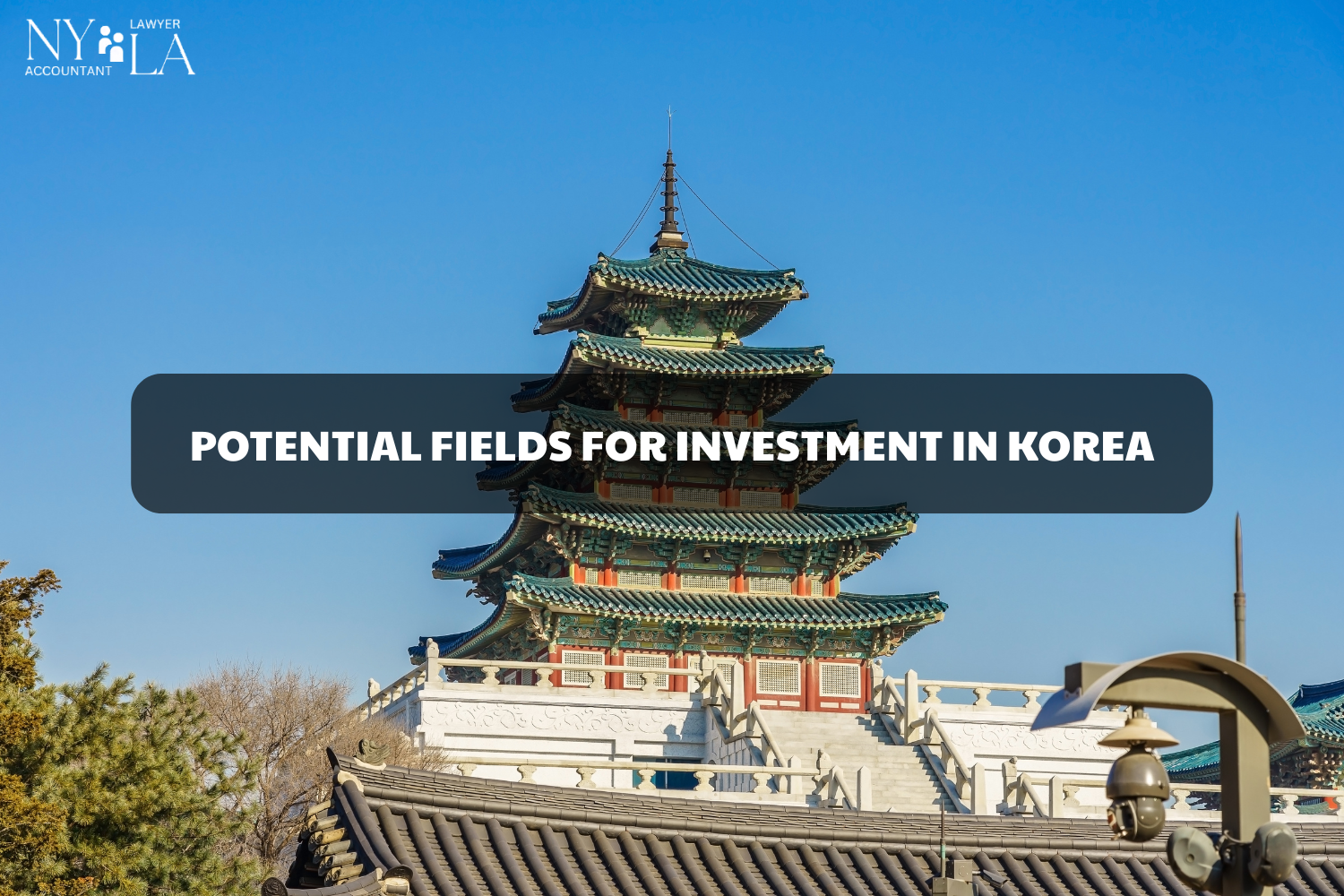Investment in Korea is increasingly becoming a priority for global investors thanks to the country’s strong political stability, reliable public safety, advanced infrastructure, skilled workforce, and dynamic private sector. As one of Asia’s leading economies, Korea offers numerous opportunities for foreign businesses to expand and grow. In particular, there are four promising sectors where foreign investment in Korea is especially attractive in 2025 and beyond.
Summary
1. Investment in Korea’s Booming Tourism Industry
One of the most promising areas for investment in Korea is its tourism sector. Following the COVID-19 pandemic, there has been a significant surge in international travel as people seek relaxation, wellness, and cultural exploration. In 2023 alone, nearly 10 million foreign tourists visited Korea—a clear sign of the sector’s strong recovery and immense potential.
Korea boasts breathtaking landscapes, diverse climates, rich cultural heritage, and world-class facilities that appeal to travelers worldwide. From Seoul’s vibrant urban scene to Jeju Island’s tranquil beauty, the country offers an experience for every type of tourist.
Recognizing the sector’s importance, the Korean government has launched several pro-tourism policies to attract more visitors and encourage foreign investment in Korea’s tourism industry. These include:
- Visa-free entry for travelers from select countries
- Eased regulations for foreign investors in hospitality and travel businesses
- Development of sustainable tourism models and infrastructure upgrades
- Support for eco-tourism and cultural tourism projects
These initiatives position Korea as a top destination not only for tourists but also for investors seeking to enter the global tourism market.

2. Renewable Energy: A Green Path for Investment in Korea
With the global shift towards sustainability, renewable energy has emerged as a key area for investment in Korea. As part of its long-term goal to achieve carbon neutrality, the Korean government is actively supporting the development of alternative energy sources like solar, wind, and hydroelectric power.
Korea is already a major player in the global solar energy value chain, offering cutting-edge technology and high productivity. The government has committed to expanding renewable energy facilities, cracking down on illegal suppliers, and providing incentives for investors to enter the market.
What makes renewable energy investment in Korea particularly appealing?
- A fast-growing market fueled by strong government support
- Commitment to international climate goals and energy transformation
- Opportunities in solar farms, wind power generation, and green infrastructure
- Financial and regulatory support for clean energy startups
In the post-COVID world, renewable energy represents a stable and future-oriented opportunity for long-term foreign investment in Korea.
3. Semiconductors: Korea’s Crown Jewel of Investment Opportunities
Another highly strategic sector for investment in Korea is the semiconductor industry. Korea is home to the third-largest semiconductor manufacturing facility in the world and holds a dominant position in memory chip production. In 2022, semiconductors accounted for 18.9% of Korea’s total exports, underscoring their critical role in the national economy.
The Korean government is committed to turning the country into the world’s leading semiconductor supply chain hub. This ambition is supported by a comprehensive strategy that includes:
- Tax incentives for semiconductor facility investment
- Grants for R&D and high-tech innovation
- Regulatory reforms to attract foreign semiconductor firms
- Plans to train 150,000 professionals for the industry by 2030
- Expansion of semiconductor complexes and smart infrastructure
For companies and investors involved in high-tech manufacturing or electronics, investment in Korea’s semiconductor sector offers unmatched growth potential.

4. ICT and Next-Gen Technologies: The Future of Investment in Korea
Korea is widely recognized as a global hub for information and communication technology (ICT). With global giants like Samsung Electronics, LG, and Naver based in the country, Korea is at the forefront of technological advancement.
For investors eyeing the future, investment in Korea’s ICT sector presents immense opportunities. The Korean government is pushing for massive investments in six core innovative technologies:
- Artificial Intelligence (AI)
- AI Semiconductors
- 5G and 6G Networks
- Quantum Computing
- Metaverse Development
- Cybersecurity Infrastructure
To support this vision, Korea offers a comprehensive package for tech startups and international investors:
- Funding for startups and tech incubators
- Support for technology transfer and global expansion
- Talent development through advanced research training programs
- Collaboration with universities and global tech firms
These initiatives make Korea not just a technology consumer, but a global innovator—offering fertile ground for investors looking to ride the next wave of digital transformation.
Why Investment in Korea Is a Smart Move Now
Across all four sectors—tourism, renewable energy, semiconductors, and ICT—the Korean government has shown a consistent commitment to fostering foreign direct investment (FDI). Whether through regulatory easing, tax benefits, or human capital development, Korea is making clear that it welcomes global investors with open arms.
Moreover, the country’s strategic location in East Asia, close to major markets like China and Japan, adds further value to any investment in Korea. Combined with its high standard of living, reliable infrastructure, and business-friendly environment, Korea continues to be a prime destination for global investment in 2025 and beyond.
Final Thoughts
If you’re considering expanding your business into Asia, investment in Korea should be at the top of your list. From cutting-edge technology and manufacturing to green energy and global tourism, the country offers diverse and dynamic opportunities for sustainable growth. Backed by strong government support and forward-looking policies, Korea is more than ready to welcome your investment.
Now is the perfect time to explore investment in Korea. The opportunities are vast, the support is strong, and the future is bright.
5. About NYLA – Korean Legal Office

■ NYLA – Your Trusted Legal Partner in Korea
At NYLA, we understand that the success of foreign businesses in Korea requires not only a solid business strategy but also reliable legal support. With a team of experienced Korean attorneys and legal professionals, NYLA provides tailored legal services for companies, investors, and individuals operating or planning to establish a presence in Korea.
We support our clients throughout the entire business journey with comprehensive services, including:
- Legal consultation on company establishment, taxation, and immigration;
- Advice on commercial real estate, franchising, and product distribution;
- Support in human resources, marketing, and business strategy.
In addition to legal advisory, NYLA also represents clients in civil litigation cases related to business, labor, marriage, family, and inheritance to ensure their rights and interests are fully protected.
■ Contact NYLA

If you’re a foreign business or individual looking for a reliable legal partner in Korea, NYLA is here to help. We are committed to delivering effective, practical, and personalized legal solutions for every client.
With a proven track record of assisting hundreds of international clients, our team is equipped to help you navigate complex legal challenges—whether it’s commercial disputes, contract issues, or foreign investment guidance.
Don’t let legal matters hold you back. Let NYLA be your trusted guide in the Korean market.
■ Get in touch with NYLA for expert legal support
| Website: https://nylakoreanlegal.com/
FB: https://www.facebook.com/nyla.koreanlegal Tiktok: https://www.tiktok.com/@nylakoreanlegal Youtube: https://www.youtube.com/@NYLA-xd8qx Email: info.NYLAkoreanlegal@gmail.com SĐT: +82 10-3415-7859 |
 |






















































